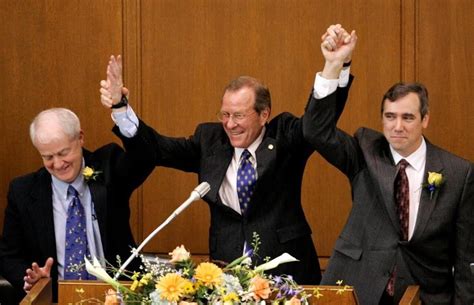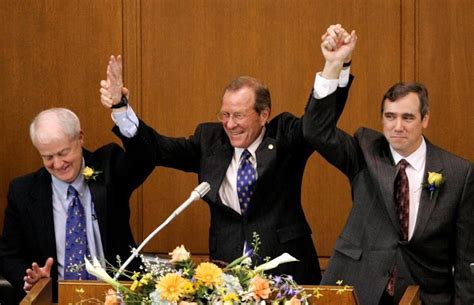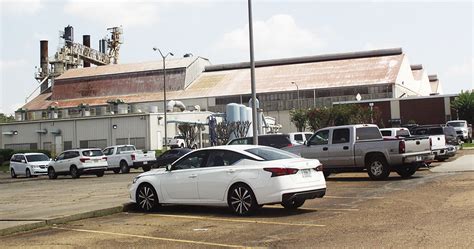
A Florida sheriff issued a stark warning to potential protesters, stating, “If you try to break into a house, loot, steal, I’m highly recommending you leave town because we’re going to treat you severely,” and adding, “…if you try to do that, we’re going to kill you.” Grady Judd, the Sheriff of Polk County, made the comments during a press conference addressing recent looting incidents following Hurricane Ian and ahead of potential unrest related to a future trial.
Polk County Sheriff Grady Judd delivered a blunt message to prospective looters and rioters: engage in criminal behavior, and face potentially lethal consequences. The sheriff’s remarks, made during a press conference on Wednesday, addressed concerns about looting incidents following Hurricane Ian and served as a preemptive warning against potential disturbances related to an unspecified upcoming trial. Judd’s forceful language, while drawing both support and criticism, underscores the unwavering stance of law enforcement in Polk County against lawlessness and disorder.
“I’m going to give you one opportunity to leave town,” Judd declared, as reported by WFLA. “If you try to break into a house, loot, steal, I’m highly recommending you leave town because we’re going to treat you severely.” He continued, “…if you try to do that, we’re going to kill you.”
Judd’s uncompromising stance is not new. He has a history of making strong statements regarding law enforcement and public safety. In 2020, during the George Floyd protests, Judd made similar remarks about maintaining order and preventing violence. His approach reflects a “tough on crime” philosophy that resonates with a segment of the Polk County population.
The sheriff’s comments come against a backdrop of heightened concerns about public safety in the aftermath of natural disasters and during periods of social unrest. Hurricane Ian, which caused widespread devastation across Florida, created opportunities for looting and property crimes. Law enforcement agencies across the state have been vigilant in preventing and responding to such incidents.
Judd’s warning was also likely influenced by the anticipation of potential unrest related to an upcoming trial. While the specific trial was not mentioned, it is common for high-profile cases to spark protests and demonstrations. Law enforcement agencies often prepare for such events to ensure public safety and prevent violence or property damage.
The remarks have elicited mixed reactions. Supporters of Judd’s approach argue that his strong stance is necessary to deter crime and protect the community. Critics, on the other hand, contend that his language is excessive and could escalate tensions between law enforcement and the public, particularly among minority communities who are disproportionately affected by police violence. Some have argued that such rhetoric normalizes the use of deadly force and undermines the principles of due process and de-escalation.
Sheriff Judd’s office has not issued any further clarification or statement following the press conference. His comments, however, remain a subject of intense debate and scrutiny. The debate highlights the complex challenges faced by law enforcement in balancing public safety with constitutional rights and community relations.
The context of Judd’s statements is crucial for understanding their implications. Polk County, located in Central Florida, has a diverse population and a mix of urban and rural areas. The county has experienced its share of crime and social unrest, prompting a strong law enforcement presence. Judd has been the Sheriff of Polk County since 2005 and has built a reputation for being outspoken and unwavering in his commitment to law and order.
The broader issue of law enforcement’s role in maintaining order during protests and unrest is a recurring theme in American society. The balance between protecting free speech rights and preventing violence or property damage is a delicate one. Law enforcement agencies are often criticized for using excessive force against protesters, while also facing pressure to prevent looting and other criminal activities.
The events in Polk County underscore the need for ongoing dialogue and understanding between law enforcement and the communities they serve. Building trust and fostering positive relationships are essential for ensuring public safety and upholding the principles of justice.
The incident also brings into sharp focus the national debate about police reform and accountability. Calls for greater transparency, de-escalation training, and independent oversight of law enforcement agencies have grown louder in recent years. The rhetoric employed by law enforcement officials plays a significant role in shaping public perception and influencing police-community relations.
Judd’s comments also serve as a reminder of the power of words, especially when spoken by those in positions of authority. Public officials have a responsibility to communicate in a manner that promotes understanding, avoids inflaming tensions, and upholds the principles of justice and fairness.
Expanded Context and Analysis
Sheriff Judd’s comments are not an isolated incident but part of a larger trend of increasingly forceful rhetoric from law enforcement officials across the United States. This trend is often attributed to a perceived increase in crime rates and social unrest, as well as a desire to project an image of strength and control. However, critics argue that such rhetoric can exacerbate existing tensions between law enforcement and the communities they serve, leading to a cycle of mistrust and violence.
The use of the phrase “we’re going to kill you” is particularly controversial, as it implies a willingness to use lethal force against individuals who have not been convicted of any crime. This raises serious questions about due process and the presumption of innocence, which are fundamental principles of the American legal system.
Furthermore, the sheriff’s comments could be interpreted as a form of intimidation, designed to deter people from exercising their right to protest. The First Amendment to the United States Constitution protects the rights to freedom of speech and assembly, and these rights are essential for a healthy democracy. Law enforcement agencies have a responsibility to protect these rights, even when they disagree with the views being expressed.
The potential for misinterpretation and abuse of power is also a concern. In a situation where tensions are already high, a police officer might be more likely to use excessive force if they believe that they have been given a green light to do so by their superiors. This could lead to tragic consequences, particularly for minority communities who are already disproportionately affected by police violence.
The timing of Judd’s comments is also significant. They were made in the aftermath of Hurricane Ian, which caused widespread devastation across Florida. In the wake of such a disaster, people are already vulnerable and stressed, and the sheriff’s comments could add to their sense of fear and insecurity. Furthermore, the comments could be interpreted as a threat to the very people who are most in need of help and support.
The upcoming trial that Judd alluded to also adds another layer of complexity to the situation. It is possible that the trial is related to a case of police misconduct or violence, which could further inflame tensions between law enforcement and the community. In this context, the sheriff’s comments could be seen as an attempt to preemptively justify the use of force, regardless of the circumstances.
The broader implications of Judd’s comments extend beyond Polk County and Florida. They contribute to a national climate of fear and division, in which law enforcement agencies are increasingly seen as being at odds with the communities they serve. This can undermine public trust in the police and make it more difficult for them to do their jobs effectively.
Impact on Community Relations
The impact of Sheriff Judd’s statements on community relations is potentially significant and multifaceted. His comments risk further alienating minority communities and those who already harbor distrust towards law enforcement. Such rhetoric can reinforce negative stereotypes and fuel perceptions of systemic bias within the police force.
For individuals who have experienced or witnessed police brutality, Judd’s words may be particularly triggering and may exacerbate feelings of fear and resentment. It could deter them from reporting crimes or cooperating with law enforcement in the future, thus undermining the effectiveness of policing efforts.
On the other hand, some members of the community may view Judd’s statements as a reassuring sign of strength and resolve. They may believe that his tough stance is necessary to deter crime and protect law-abiding citizens. This view is often prevalent among those who feel that law enforcement is not doing enough to address crime in their neighborhoods.
However, even among those who support Judd’s approach, there may be concerns about the potential for abuse of power. Some may worry that his comments could embolden individual officers to use excessive force or engage in discriminatory practices. This could lead to a erosion of trust in the police, even among those who initially supported the sheriff’s message.
The impact on community relations will also depend on how Judd’s statements are perceived by different groups within the community. It is likely that there will be a range of opinions, reflecting the diverse backgrounds and experiences of Polk County residents. It is crucial for community leaders and law enforcement officials to engage in open and honest dialogue in order to address these concerns and foster a more positive relationship between the police and the community.
Legal and Ethical Considerations
Sheriff Judd’s statements raise significant legal and ethical considerations. While law enforcement officials have a responsibility to protect public safety, they must also respect constitutional rights and uphold the principles of due process.
The use of the phrase “we’re going to kill you” could be interpreted as a threat, which could potentially violate state or federal laws. It could also be seen as an incitement to violence, which is also illegal.
Furthermore, Judd’s comments could potentially expose Polk County to legal liability. If a police officer were to use excessive force against a protester or looter, the county could be sued for damages. Judd’s statements could be used as evidence that the county condoned or encouraged the use of such force.
From an ethical perspective, Judd’s comments raise questions about the role of law enforcement in a democratic society. Police officers are supposed to be impartial and unbiased, and they are not supposed to act as judge, jury, and executioner. By suggesting that police officers are authorized to kill people who are suspected of committing crimes, Judd is undermining these fundamental principles.
Potential Consequences
The potential consequences of Sheriff Judd’s statements are far-reaching.
- Increased Tensions: His remarks could further exacerbate tensions between law enforcement and the community, particularly among minority groups.
- Legal Challenges: His words may open the door for legal challenges against the Polk County Sheriff’s Office, especially if they lead to incidents of excessive force.
- Erosion of Trust: The public’s trust in law enforcement could be eroded if Judd’s comments are perceived as an endorsement of vigilante justice.
- National Scrutiny: The controversy could attract national attention, further damaging the reputation of Polk County and its law enforcement agencies.
- Impact on Recruitment: The negative publicity could make it more difficult to recruit qualified and diverse candidates to the Polk County Sheriff’s Office.
- Escalation of Violence: Judd’s remarks could embolden individuals on both sides of the conflict to resort to violence.
- chilling effect on protests: Potential protestors may be deterred from exercising their constitutional rights to free speech and assembly due to fear of lethal force.
- Damage to Police-Community Relations: Long-term damage to the relationship between police and the community, making it more difficult for law enforcement to effectively serve and protect.
- Normalization of Excessive Force: The normalization of excessive force within the department, potentially leading to more instances of police brutality and misconduct.
- Reduced Cooperation with Law Enforcement: Reduced cooperation from the community in solving crimes, as people may be less willing to trust or assist the police.
Alternatives to Confrontational Rhetoric
There are several alternatives to confrontational rhetoric that Sheriff Judd could have employed. These approaches would have been more constructive and would have been less likely to escalate tensions between law enforcement and the community.
- Emphasis on De-escalation: Judd could have emphasized the importance of de-escalation techniques and the use of non-lethal force.
- Communication of Clear Expectations: He could have clearly communicated the expectations of law enforcement, while also respecting the rights of protesters.
- Focus on Community Engagement: He could have focused on building positive relationships with the community, rather than issuing threats.
- Partnership with Community Leaders: He could have partnered with community leaders to address concerns and promote dialogue.
- Transparency and Accountability: He could have emphasized the importance of transparency and accountability in law enforcement.
- Reiterating Rule of Law: Reminding the public that the rule of law applies equally to everyone, including law enforcement, and any actions taken by the police will be in accordance with established legal procedures and constitutional rights.
- Emphasizing Prevention: Prioritizing preventative measures, such as increasing police presence in areas prone to looting and working with community organizations to address the root causes of crime.
Conclusion
Sheriff Grady Judd’s comments have sparked controversy and raised important questions about the role of law enforcement in a democratic society. His remarks highlight the need for ongoing dialogue and understanding between law enforcement and the communities they serve. While his supporters argue his strong stance is needed to deter crime, critics worry his rhetoric could escalate tensions and undermine constitutional rights. The incident underscores the importance of responsible communication from public officials and the need for law enforcement to balance public safety with respect for civil liberties. The fallout from Judd’s statements serves as a critical case study in the complexities of police-community relations and the power of words in shaping public perception and policy. It remains to be seen how the events in Polk County will impact the broader national conversation about police reform and accountability.
Frequently Asked Questions (FAQ)
1. What exactly did Sheriff Judd say, and in what context?
Sheriff Grady Judd of Polk County, Florida, stated, “If you try to break into a house, loot, steal, I’m highly recommending you leave town because we’re going to treat you severely,” and added, “…if you try to do that, we’re going to kill you.” He made these remarks during a press conference addressing concerns about looting incidents following Hurricane Ian and ahead of potential unrest related to an unspecified upcoming trial. The context suggests a preemptive warning to deter potential criminal activity.
2. What is the potential legal ramifications of Sheriff Judd’s statement?
Legally, Judd’s statement could be viewed as a threat or incitement to violence, potentially violating state or federal laws. It could also expose Polk County to legal liability if law enforcement uses excessive force based on this perceived authorization. Critics might argue the statement oversteps the bounds of law enforcement’s authority and undermines due process.
3. How has the community reacted to Sheriff Judd’s comments?
Community reactions have been mixed. Some residents support Judd’s tough stance, believing it is necessary to deter crime and protect the community. Others, particularly minority communities and civil rights advocates, criticize the statement as excessive, potentially discriminatory, and likely to escalate tensions between law enforcement and the public.
4. Are there any alternative approaches Sheriff Judd could have taken?
Yes, alternative approaches include emphasizing de-escalation techniques, clearly communicating law enforcement expectations while respecting rights, focusing on community engagement and partnership with community leaders, and promoting transparency and accountability. These approaches would likely be more constructive in fostering trust and cooperation.
5. How do Sheriff Judd’s comments fit into the broader national conversation about police reform and accountability?
Sheriff Judd’s comments highlight ongoing tensions in the national debate about police reform and accountability. They underscore concerns about the use of force, particularly against minority communities, and raise questions about the rhetoric employed by law enforcement officials. Critics argue for greater transparency, de-escalation training, and independent oversight to prevent abuse of power. His statements can be viewed as a step backward from the goals of improving police-community relations.









